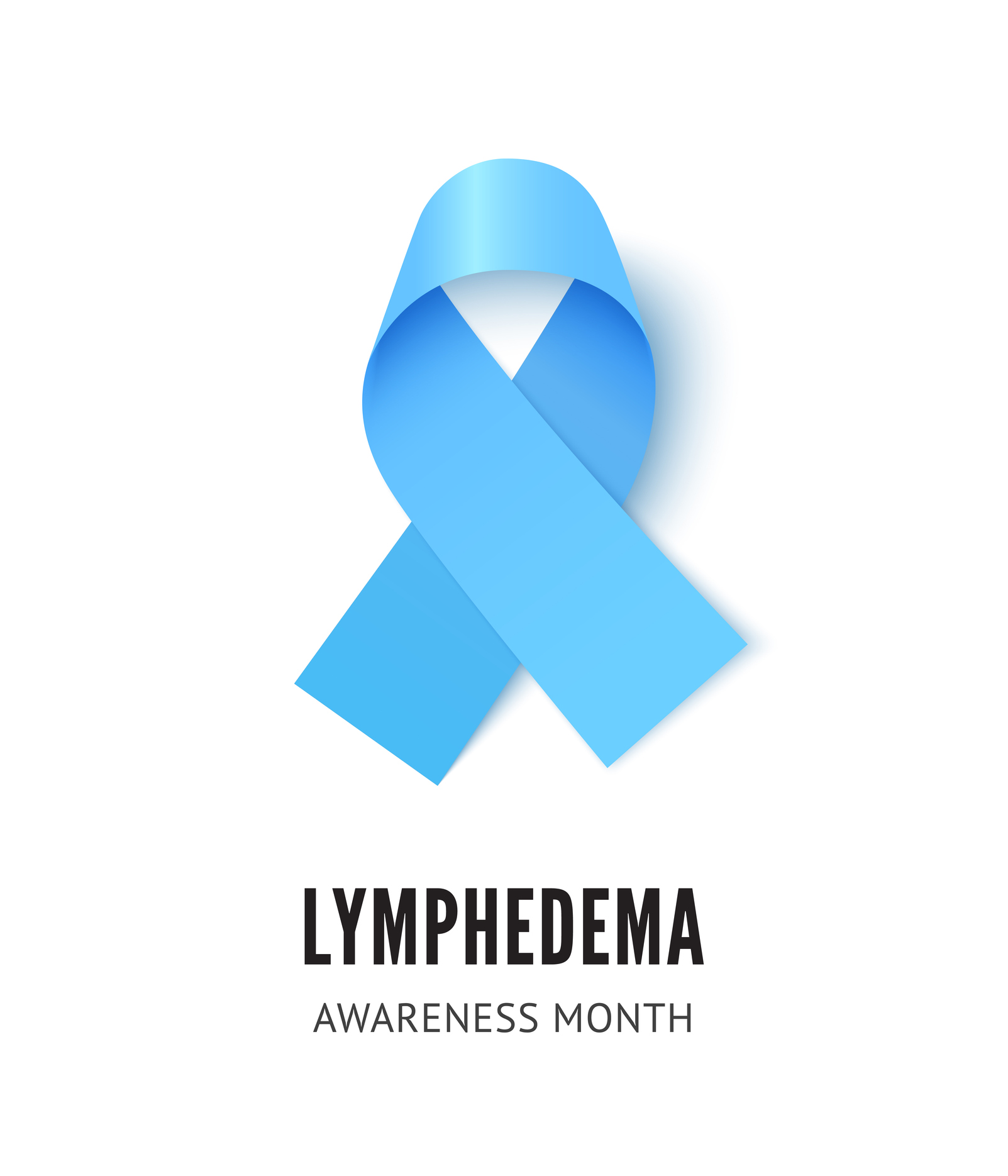Help and Hope for People with Lymphedema
- Category: Awareness
- Posted On:

March Is Lymphedema Awareness Month
The lymphatic system plays a crucial role in your body’s immune system. Lymph glands, or “nodes,” produce lymphocytes, a type of white blood cell that recognizes foreign substances in the body such as bacteria, viruses and protein wastes. The clear, watery lymph fluid containing these lymphocytes circulates throughout the body via the lymphatic system of vessels and nodes to remove these substances from body tissues.
But sometimes the lymphatic system doesn’t function properly if the lymph vessels or nodes are deformed due to genetic factors or impacted by surgery, radiation, scar tissue, infection or trauma. In these cases, the lymph fluid accumulates in soft tissues just under the skin in parts of the body and causes painful swelling, most often in the arms or legs, but occasionally in other parts of the body such as the head, neck, torso or genitals.
Director of Washington Hospital Rehabilitation Services Christy Casey, OTR/L, explains that there are two basic types of lymphedema. “Primary lymphedema is when a person is born with a deficient lymphatic system — even though the symptoms may not show up until later in life,” she notes. “Primary lymphedema tends to run in families.
“Secondary lymphedema can be caused by surgery to remove lymph nodes, such as in the groin, underarm or pelvis; by radiation to the groin, underarm, pelvis or neck; or by scar tissue resulting from surgery or radiation in the lymphatic ducts, veins or under the collarbone,” she continues. “It also can be due to cancer with lymph node involvement in the pelvis, underarm, chest, neck or abdomen, as well as tumors that involve or put pressure on the lymphatic vessels or the large lymphatic ducts.”
Treatment
The outpatient Lymphedema Clinic at Washington Hospital is one of a handful of health care providers in the Bay Area that provides specialized treatment for lymphedema. Opened in 2005, the Lymphedema Clinic currently is staffed by two physical therapists that are certified as lymphedema therapists by the Lymphology Association of North America (LANA) – Jina Kim, DPT, CLT-LANA; and Susan Yi, MPT, CLT-LANA.
A registered/licensed occupational therapist, Casey encourages patients to check the credentials of therapists offering lymphedema treatments. “Our lymphedema therapists have completed extensive training in providing lymphedema care,” she explains. “Certification assures that a therapist has the proper training.”
Early treatment of lymphedema is essential, and patients must manage their condition throughout their lifetimes.
Treatments provided by the Lymphedema Clinic might include:
- Instructions for daily skin care to ensure there are no breaks in the skin.
- Manual lymph drainage massage to redirect the lymph fluid back up to the heart where it is pumped to the kidneys to filter out wastes.
- Application of compression bandages or garments around the affected extremities to prevent fluid from accumulating.
- Therapeutic exercises to help move the lymph fluid throughout the body.
Importance of Education
“Our therapists offer extensive patient education, since their goal is to teach patients to manage the condition themselves,” Casey says. “For example, the therapists teach patients how to perform their own manual lymph draining, which is a light form of massage. Our therapists also work with medical professionals to increase awareness of lymphedema.” They provide information about proper diet and nutrition to support the immune system, since both obesity and diabetes can increase the risk of lymphedema and jeopardize the effectiveness of treatment.
To obtain treatment at the Lymphedema Clinic, patients must get a referral from their physician and then call 510.818.6758 to schedule an appointment. They also may need authorization from their health insurance provider before treatment begins. Clinic staff can help confirm insurance coverage.
In addition to working directly with patients and health care providers, the Lymphedema Clinic offers a Lymphedema Education class for anyone who is interested in learning more about the lymphatic system and lymphedema. The class is held on the second Tuesday of the month from 1:30 to 2:30 p.m. in the Women’s Center conference room at 2500 Mowry Ave. For details, contact the Lymphedema Department at 510.818.6758.
For additional resources for information about the causes, symptoms and treatment of lymphedema, visit the Washington Hospital website at whhs.com/Lymphedema.
